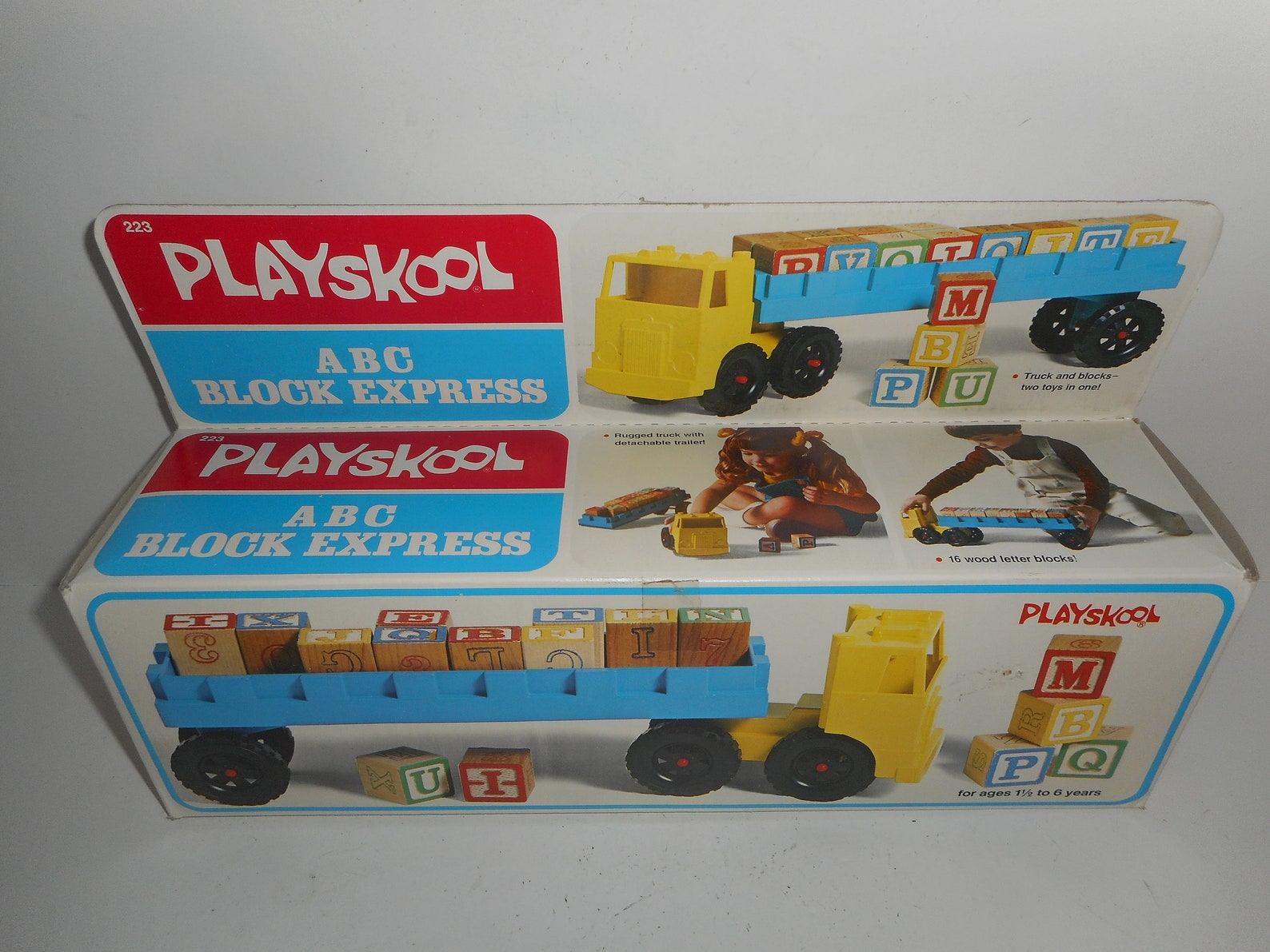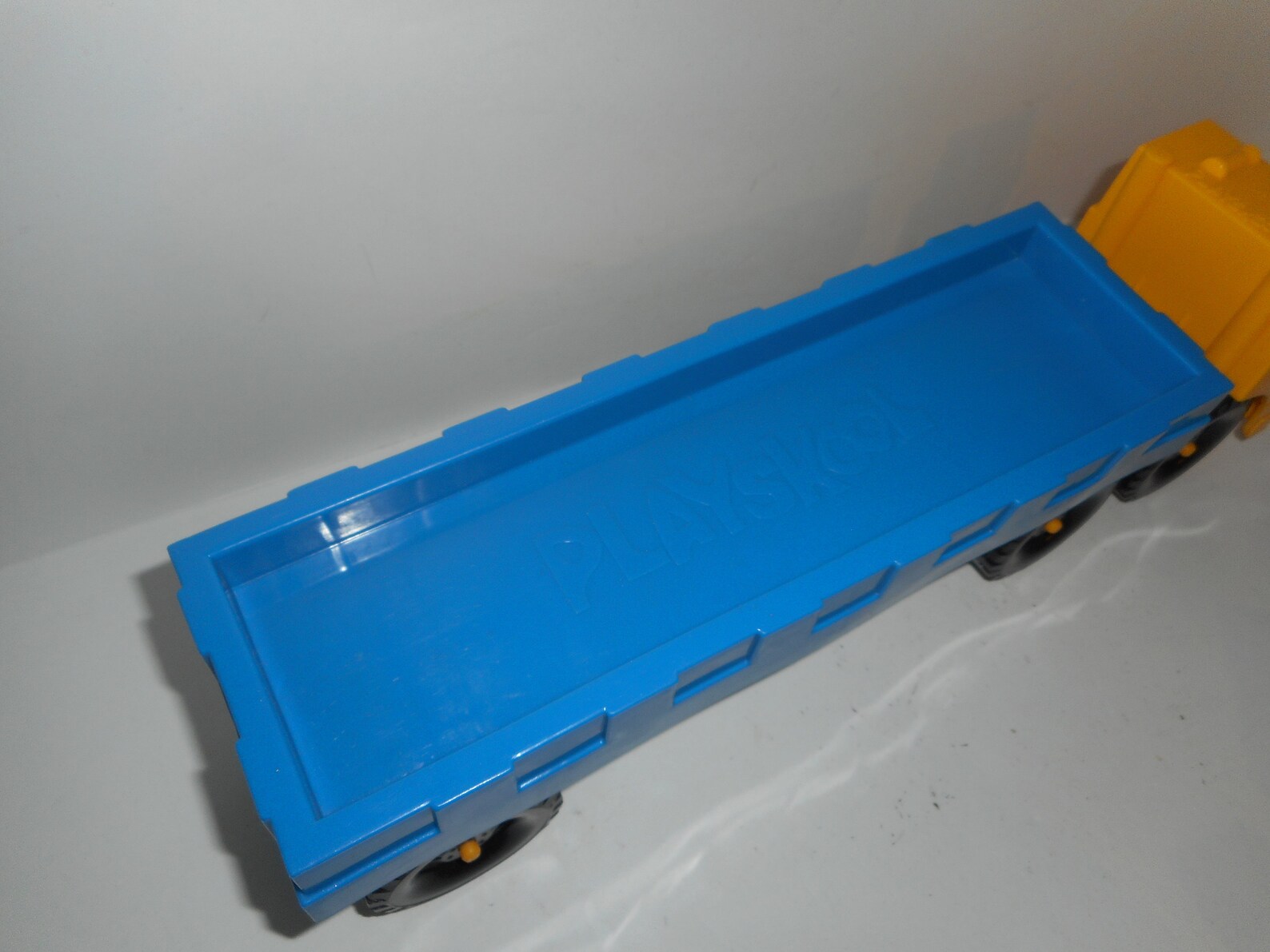


#Playskool abc box series
ĭuring the 1970s, Playskool also released a toy series named "Familiar Places" which included several toy buildings along with vehicles and toy people, including a McDonald's restaurant, Holiday Inn hotel and Texaco gas station. Playskool also produces several dolls and action figures, including Dolly Surprise and Kota the Triceratops. Several toys, like Playskool's Pipeworks, Go Go Gears, and Busy Basics lines, were created to allow children to express creativity. Playskool creates products for newborn to preschool-aged children products like the Kick Start Gym, Step Start Walk 'n Ride, and the Tummy Time line are aimed at developing the motor skills of babies. Potato Head, Tonka, Alphie, Weebles, Elefun, Sesame Street toys, and Gloworm. Playskool's signature brands and toys include Mr. Playskool produces many lines of educational toys and games for children. Hasbro also began licensing the Playskool brand name to other vendors, manufacturing a number of products under the Playskool name, including books, baby care supplies, video games, and children's apparel. Playskool also began licensing toys from other designers, creating licensing agreements to manufacture Teddy Ruxpin, Barney, Arthur, Teletubbies, and Nickelodeon branded products. Many Hasbro products targeted at preschoolers were rebranded with the Playskool name, including Play-Doh and Tonka. In 1985, Playskool released a line of infant products under the Tommee Tippee brand name, including bibs and bottles. Īfter the acquisition, Playskool began operating out of Pawtucket, Rhode Island as a division of Hasbro. In 1968, Playskool became a subsidiary of Milton Bradley both companies were acquired by Hasbro, Inc. In 1962, they purchased the Halsam Company, a producer of wooden blocks, checkers, dominoes, and construction sets. In 1958, Playskool merged with Holgate Toys, Inc., a wood product manufacturer based in Kane, Pennsylvania. Wright Company, the manufacturer of Lincoln Logs.

In 1940, Fink, along with Robert Meythaler, bought Playskool and established the Playskool Manufacturing Company. In 1938, Playskool was purchased by the Joseph Lumber Company, where Manuel Fink was placed in charge of operations. In 1935, the Playskool Institute became a division of Thorncraft, Inc., and established offices in Chicago, Illinois. King, an employee at the company, developed wooden toys to use as teaching aids for children in the classroom. The Playskool Institute was established by Lucille King in 1928 as a division of the John Schroeder Lumber Company in Milwaukee, Wisconsin.


 0 kommentar(er)
0 kommentar(er)
